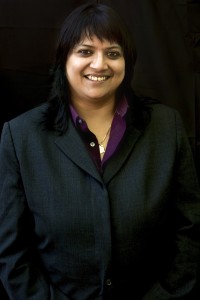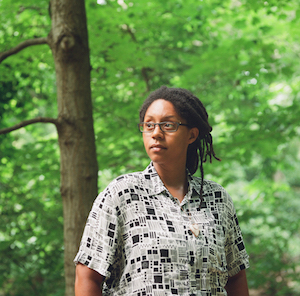Asking Brave Questions
Perhaps it was a gutsy move. The four of us, a multi-racial team of independent consultants for social justice organizations, working with a local food justice nonprofit on values alignment, including pay equity. We sat in a circle in our client’s empty office to negotiate and decide how we wanted to distribute the contract.
A little more context might help you understand how we found ourselves at this conversation in the first place. Our team consists of Richael, Mala, Julia and Rebecca, the four of us are close friends who socialize with each other’s partners and families, we work together on other contracts and professional endeavors, and we support each other’s other vocational work and radical dreams from writing to workshops.
We, Richael and Mala, the authors of this blog, are queer people of color–Richael is a Black, trans-nonbinary folk healer, strategist, lawyer and former organizer who supports many parts of Black, Indigeous and People of Color (BIPOC) movement community; and Mala is South-Asian queer nonprofit strategist and human resources professional who has been thinking about, creating resources, and furthering racial justice lens, within organizational development work for decades.
Our other two friends and colleagues are white and (upper) middle-class folks (who have differences across religious backgrounds, parents immigration histories, regional identifications, and skill-sets) with backgrounds in prison abolition, Central American solidarity, food justice, resource redistribution, and who lead DC-area spaces for white folks to embody their own racial justice values. We each carry deep personal, political, and vocational commitments to racial justice, and we deeply respect one another’s experience and knowledge.
With our deep experience, comes an acute awareness that, especially with the world of organizational development and diversity, equity and inclusion (DEI) consulting, how much of a gap can exist between what consultants tell organizations to do, but don’t practice themselves. Namely, as our team was supporting a white-led, multi-racial organization with long-time grievances about titles, advancement, and unequal pay among staff of color, we needed to do our own work to ensure that there was pay equity within our own consultant team. Simply put, we didn’t want to be the hypocrites that we critiqued. We were working with a local food justice org to address pay equity, but we were also facing critical choices about directing money that we were earning that would allow us to feel in integrity–or not.
On one hand, we could have used a couple of standard ways to price projects. Based on our proposal, which estimated $150/hour rate for convenience, we could have calculated our estimated hours per month, assigned the hourly rate, and let our consideration end there. Honestly, this is how a lot of consultant work goes, it’s fairly simple and efficient, and doesn’t require a lot of precious energy or critical thinking.
And, on the other hand, we suspected this standard did not allow us to live our walk. Using a standard hourly rate without examining how we got here or what work we each were holding would simply mirror biased norms. At that singular moment, the convergence of our work came toan opportunity to make a bold decision. We called it out: What are the values we want reflected in this distribution?
Our conversation started, informed by our lives, research, and professional work. We named the factors that represented the values important to us:
- “Historical discrimination1.”
- “Net worth – wealth, not income2.” We ended up taking both wealth and income into account because the data shows both matter when looking at disparities in economic opportunities between black and white households.3 .
- “The number of people you support through this income4.”
- “Emotional labor5.”
- “Monthly expenses6,7.”
- And finally, “distributed and anticipated inheritance8,9,10,11.”
At the end of the conversation we were led to a much more complex set of factors than standard hourly billing could account for, and we recognized, at this stage, we needed to generate a tool to help us identify our individual rates. Our goal was to create a distribution structure that actually felt fair for all of our systemic realities which most compensation systems don’t consider (perhaps intentionally). We came up with a collective ranking and applied that to the total compensation.
To do that, we customized a pay equity process and calculator, developed by our human resources expert, Mala, which reflected each factor that we called out, along with a list of other factors based on basic needs (e.g. minimum and maximum acceptable pay rate). We each had to go through the uncommon process of collecting accurate financial data from our households, businesses, partners, and parents. Once we collected these data, and plugged them into the calculator that Mala developed, we began to use it for billing our client, which we refined with feedback and revisions.
What did we discover?
We found that our white team members significantly underestimated their own net worth and their parents’ net worth by millions, while Richael under-estimated their parents’ liabilities, which had dramatically changed in the last few years. Ultimately, we learned that despite our middle class appearances and racial justice commitments, we were the wealth gap statistics.12
We also found that alongside the statistics were: raw emotional reactions, values, tensions based on our beliefs and systemic locations, and open questions about the echo of meanings within these revelations. And yet, in our team reflection, the Black team member said this was the first time they didn’t feel resentful about their compensation within a group. We were getting closer to equity.
This real-life experiment has shaped how we think about our racial equity organization work, too. When we offered our pay equity process and calculator as an example of what was possible to our client’s staff members, we experienced a range of responses, from flowing tears of a Black program staff member (being recognized for the historical and present-day discrimination and bias she faced and had to overcome to just get a seat at the table), to polite defensiveness of a white director.
We knew immediately that we were tapping a racial equity vein not only at this organization, but within the sector and beyond. What could the life blood within our workplaces and movements feel like if we shifted the payscale and internally strengthened protections? Could social justice organizations be the source of a private reparations movement to make workplaces fairer and more effectively make market corrections?
Many people are under the impression that making public our salaries, our wealth, our access to resources is illegal. Far from it—in fact, labor regulations prohibit retaliation against workers from sharing their salaries with one another, which essentially bars policies that prohibit workers from having salary conversations. Still, many businesses have created personnel policies that prevent salary sharing, even though it’s against the law, because our modern work culture standards are set by corporate America. Income secrecy is a divisive cultural tool that fits Friedman’s free market capitalist logic, because it benefits the 1% and other mega-beneficiaries of the corporatized economy. Simply put, we don’t have to abide.
What we need to do is acknowledge that there is shame and hurt in how much racist policies have privileged some and oppressed others. Let’s not blame ourselves in the 99%. We’ve been pitted against each other long enough. But once we know the impact of these policies–including decision-makers who can make different choices, and those for whom decisions have been made and who are able to advocate and organize toward equity–let’s act.
If you have benefited from these policies, voluntarily redistribute. Voluntarily, because we are all stronger for it. When 25%13,14 of us who have been privileged voluntarily redistribute because it’s the right thing to do, the scales of justice and social pressure will turn people to do the right thing (not because of the law). The last vestige of holdouts will be moved when the law no longer hides their privilege or when their children who inherit their wealth, whose values are more justice-centered, can redistribute for them.
1 https://www.ncbi.nlm.nih.gov/pmc/articles/PMC2915460/
2 http://www.lchc.org/wp-content/uploads/02_LCHC_EconJustice.pdf
3 https://www.clevelandfed.org/newsroom-and-events/publications/economic-commentary/2019-economic-commentaries/ec-201903-what-is-behind-the-persistence-of-the-racial-wealth-gap.aspx
4 https://www.pewresearch.org/fact-tank/2019/10/01/the-number-of-people-in-the-average-u-s-household-is-going-up-for-the-first-time-in-over-160-years/
5 https://hbr.org/2010/09/why-is-it-that-we.html
6 https://results.org/wp-content/uploads/2019-RESULTS-US-Poverty-Racial-Wealth-Inequality-Briefing-Packet-Section-1-Final-2.pdf
7 https://s3.amazonaws.com/oxfam-us/www/static/media/files/bp-reward-work-not-wealth-220118-en.pdf
8 https://academic.oup.com/sf/article/96/4/1411/4735110
9 https://www.urban.org/sites/default/files/publication/31206/1001166-wealth-and-economic-mobility.pdf
10 https://equitablegrowth.org/race-and-the-lack-of-intergenerational-economic-mobility-in-the-united-states/
11 https://www.wilsonquarterly.com/stories/why-rich-kids-become-rich-adults-and-poor-kids-become-poor-adults/
12 We see our experiment as a form of inter-personal reparations. Learn more beyond our example. https://wellexaminedlife.com/2016/04/20/the-case-for-inter-personal-reparations/
13 Centola, Damon, et al. Experimental evidence for tipping points in social convention. Science. Jun 08, 2018.
14 Centola, Damon. The 25 Percent Tipping Point for Social Change. Psychology Today. May 28, 2019.
Mala Nagarajan (she/he) is an HR consultant that works with small-to-midsize nonprofits in practicing values-based, people-centered, and movement-oriented human resources management. Mala is a systems thinker and strategist; a racial and disabilities justice advocate; and she thrives on working at the edge of innovation, developing custom client-centered tools like the Pay Scale Equity Process and Calculator(TM). As a member of the RoadMap consulting network, she has coordinated their HR/RJ working group, supported their My Healthy Organization and Our Healthy Alliance online assessments tools, and works with multiracial teams to untangle thorny equity issues embedded in organizational culture, structures, and systems.
Richael Faithful (they/them) is a multidisciplinary folk healer, facilitator, strategist, creative and lawyer. Part of their work supports groups that are developing healing culture and practices with analyses of power and systems. Learn more about Richael at: www.richaelfaithful.com
featured image by Micheile Henderson

